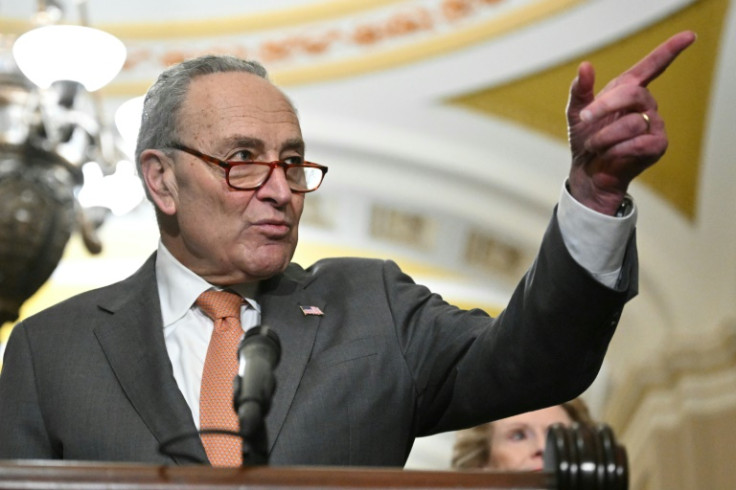Senate Greenlights Continuation Of FISA Surveillance Program

US Senate approved a two-year extension of the Foreign Intelligence Surveillance Act's (FISA) program for warrantless surveillance early Saturday. The decision came after lengthy and occasionally heated discussions on the Senate floor, narrowly preventing a crucial national intelligence-gathering capability from lapsing.
"Democrats and Republicans came together and did the right thing for our country's safety," Chuck Schumer, the leader of the Democratic majority in the Senate was quoted by The Guardian.
"We all know one thing: letting Fisa expire would be dangerous. It's an important part of our national security, to stop acts of terror, drug trafficking and violent extreme extremism."
Lawmakers from both the Republican and Democratic parties have voiced criticism against FISA, arguing that it encroaches upon the constitutional right to privacy of American citizens. Over the past five months, House Republicans have thwarted the bill three times, going against the tide of their party. Nevertheless, it managed to secure passage last week by a margin of 273-147, after its duration was curtailed from five years to two.
According to Reuters, Senators voted 60-34 to forward the bill to President Biden's desk shortly after the midnight deadline, averting a potential lapse in expanded surveillance powers.
The White House, intelligence chiefs, and leading members of the House intelligence committee issued stark warnings about the potentially catastrophic consequences of failing to reauthorize the program. Originating in the aftermath of the 9/11 attacks, the program's importance was underscored as its expiration loomed.
Members of the Senate Republican leadership team, including Senate GOP Leader Mitch McConnell from Kentucky and Cornyn, strongly backed the bill that had been passed by the House.
McConnell emphasized on the Senate floor the necessity for the House to broaden the scope of electronic communications governed by the law, citing that when it was initially drafted, "the Internet was in the dark ages."
Cornyn, a member of McConnell's leadership team, praised FISA's expanded surveillance authority as "the most important law that most Americans have never heard of," highlighting its significance as "an essential tool for our intelligence community to protect the American people against a whole array of threats."
Another contentious provision of the bill pertains to notifications regarding searches involving lawmakers, which has sparked criticism. Critics argue that these provisions create a double standard, offering protections to certain members of Congress while leaving others without similar safeguards. This disparity has been characterized as unjust and inconsistent with principles of equality under the law.
© Copyright IBTimes 2024. All rights reserved.






















